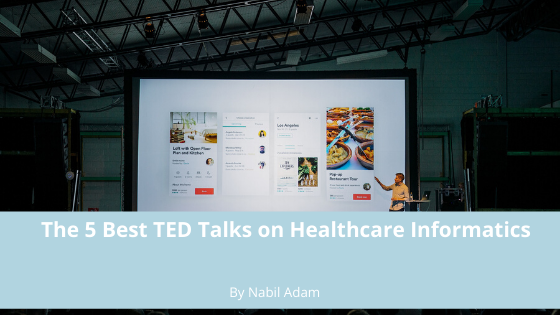Healthcare informatics is an ever growing and evolving field. With advancements in health informatics we have the ability to improve patient access, care, and outcomes. That being said, I’ve gathered together my top 5 favorite TED Talks on healthcare informatics to share with you.
Anders Ynnerman: Visualizing The Medical Data Explosion
In his talk, Anders Ynnerman discusses the challenge that doctors face when they’re inundated with data, so much data that it can be overwhelming to analyze and know what information is actually useful. Ynnerman discusses the new technologies including virtual autopsies that can help doctors parse that data to make sound medical decisions. Be forewarned that the presentation does include some highly graphic images.
Data Driven Healthcare: It’s Personal by Aaron Black
Director of Informatics at the Inova Translational Medicine Institute (ITMI), Aaron Black, talks about the various ways in which predictive health data models can be personalized to drive better healthcare decisions and improve patient outcomes.
Thomas Goetz: It’s Time to Redesign Medical Data
Thomas Goetz, author of The Decision Tree: Taking Control of Your Health in the New Era of Personalized Medicine, discusses the importance of making medical information and health records accessible to patients in ways that help people engage in their own healthcare.
Future Medicine: Modern Informatics by Richard Frackowiack
Dr. Richard Frackowiack explains how data mining in hospitals can lead to more precise diagnosis and treatment of harmful diseases. Dr. Frackowiack discusses how all the data available through patient medical records along with research data can provide better, more accurate, predictive models for dealing with disease.
Artificial Intelligence in Healthcare – It’s about Time by Casey Bennett
In this talk, Dr. Casey Bennett, Chief Scientific Officer for Faros Healthcare, discusses how artificial intelligence can be utilized in healthcare to make better decisions, access better information, and ultimately empower patients.

